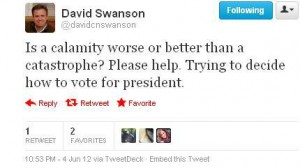I would like to recommend two great articles to tide my two dozen readers over, while I steel myself to actually return to writing for this here blog again:
1. A World of Hillbilly Heroin: The Hollowing Out of America, Up Close and Personal, by Chris Hedges, with illustration by Joe Sacco, creator of the fantastic Footnotes in Gaza.

Amazing, heartbreaking stuff:
The clinic handles federal and state black lung applications. It runs a program for those addicted to prescription pills. It also handles what in the local vernacular is known as “the crazy check” — payments obtained for mental illness from Medicaid or SSI — a vital source of income for those whose five years of welfare payments have run out. Doctors willing to diagnose a patient as mentally ill are important to economic survival.
“They come in and want to be diagnosed as soon as they can for the crazy check,” the nurse says. “They will insist to us they are crazy. They will tell us, ‘I know I’m not right.’ People here are very resigned. They will avoid working by being diagnosed as crazy.”
2. The Unconstitutional 40 Years War On College Students, written by the feisty and always worth reading Moe Tkacik for Reuters, and reproduced on her wonderfully titled blog daskrapital.
And as they became more steadily impervious to the usual laws of credit and debt, [college loans] became bigger and more profitable. In the years since the Bankruptcy Reform Act passed, the nominal price of college tuition has risen more than 900%. Over the same period the median male income—again, nominally—has risen 165%. And since the percentage of the workforce boasting a bachelor’s degree has expanded from less than 20% to nearly a third, I don’t have to convince you that the median de facto ROI on those diplomas has diminished greatly over the same years. Which brings us to the second way in which the student debt bubble differs from all the others you’ve seen. It is legally impossible to pop. By law it can only grow very fast or even faster.
….
Naturally, this story has its brighter side of enterprising corporate leadership generating shareholder value. The finances of Sallie Mae, the former government sponsored enterprise formally called SLM Corp. are a bit difficult to divine, but the operating profit margin is over 50%. It will surely surge higher if CEO Albert Lord executes on his current strategy of turning the $700 million “sweet spot” that is its “fee income” division into a billion dollar business. “Fee income” means collections, but student loan collectors “do things that no other industry could get away with,” a veteran debt collector named Joseph Leal told Student Loan Justice. They stalk, threaten family members, and jack up loan balances by thousands of dollars at whim, and they do it all with impunity because they are legally entitled to garnish your wages.
Fee income is not just a sweet spot for Sallie. Premiere credit, formerly the collections subsidiary of its fiercest rival Nelnet, is so flush it keeps a 3,800-gallon saltwater shark tank in its main lobby, as explained above. The margins on college loan sharking are so grotesquely fat that the government even rakes in a juicy cut: in 2010 the Department of Education reported collecting $1.22 for every dollar in defaulted student loans it had guaranteed—and that’s after the sharks and their shareholders and the obligatory outright fraud had taken their first round of cuts. Between a quarter and a third of about $850 billion worth of federally guaranteed loans are already in default, so this is real money we are talking about. Given the $23 trillion worth of other securities the federal government has pledged to guarantee over the past few years, we can only expect the default rate to surge higher.
When I started this post, I intended to comment on how these two pieces have little to do with each other, but now I’m not so sure.












